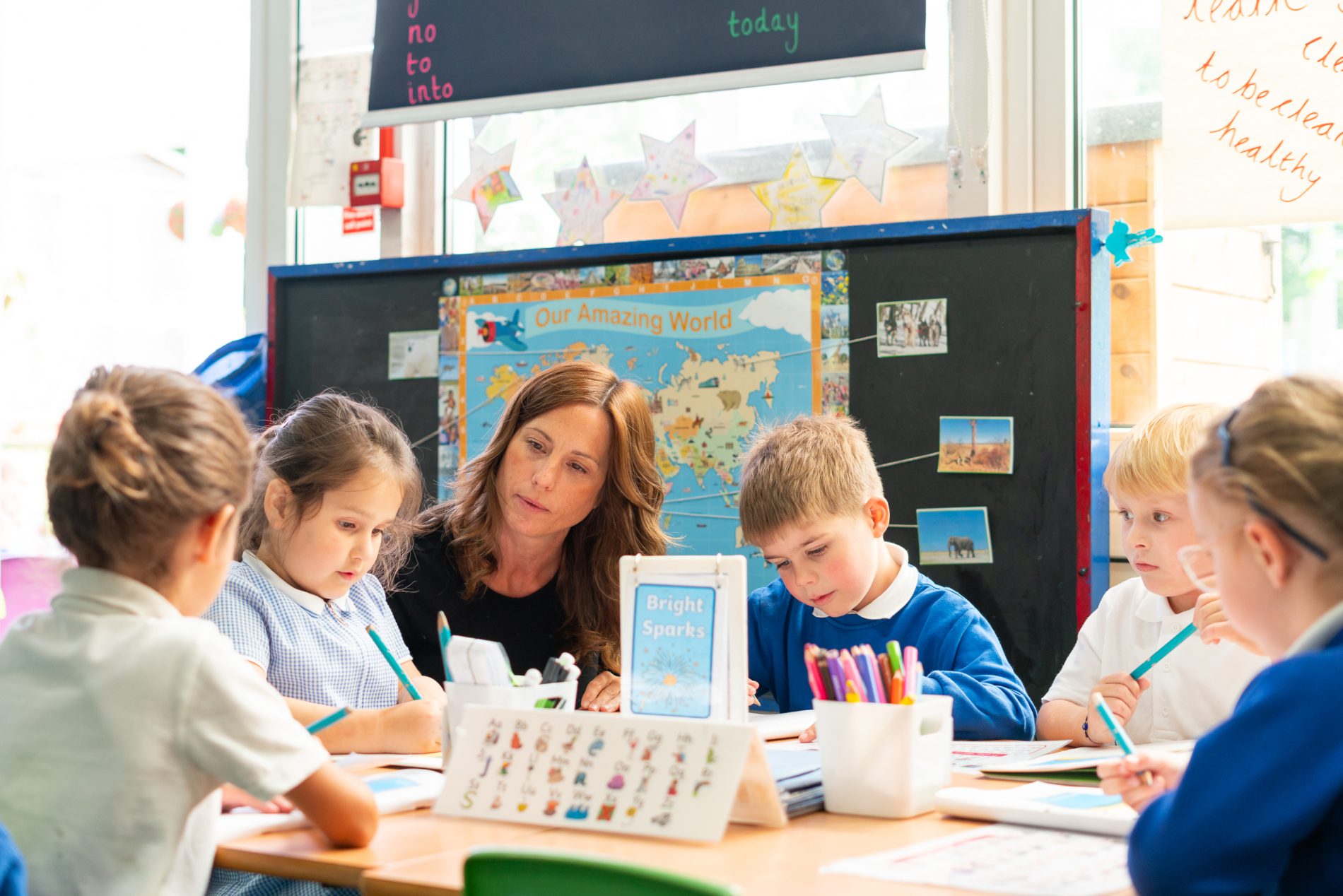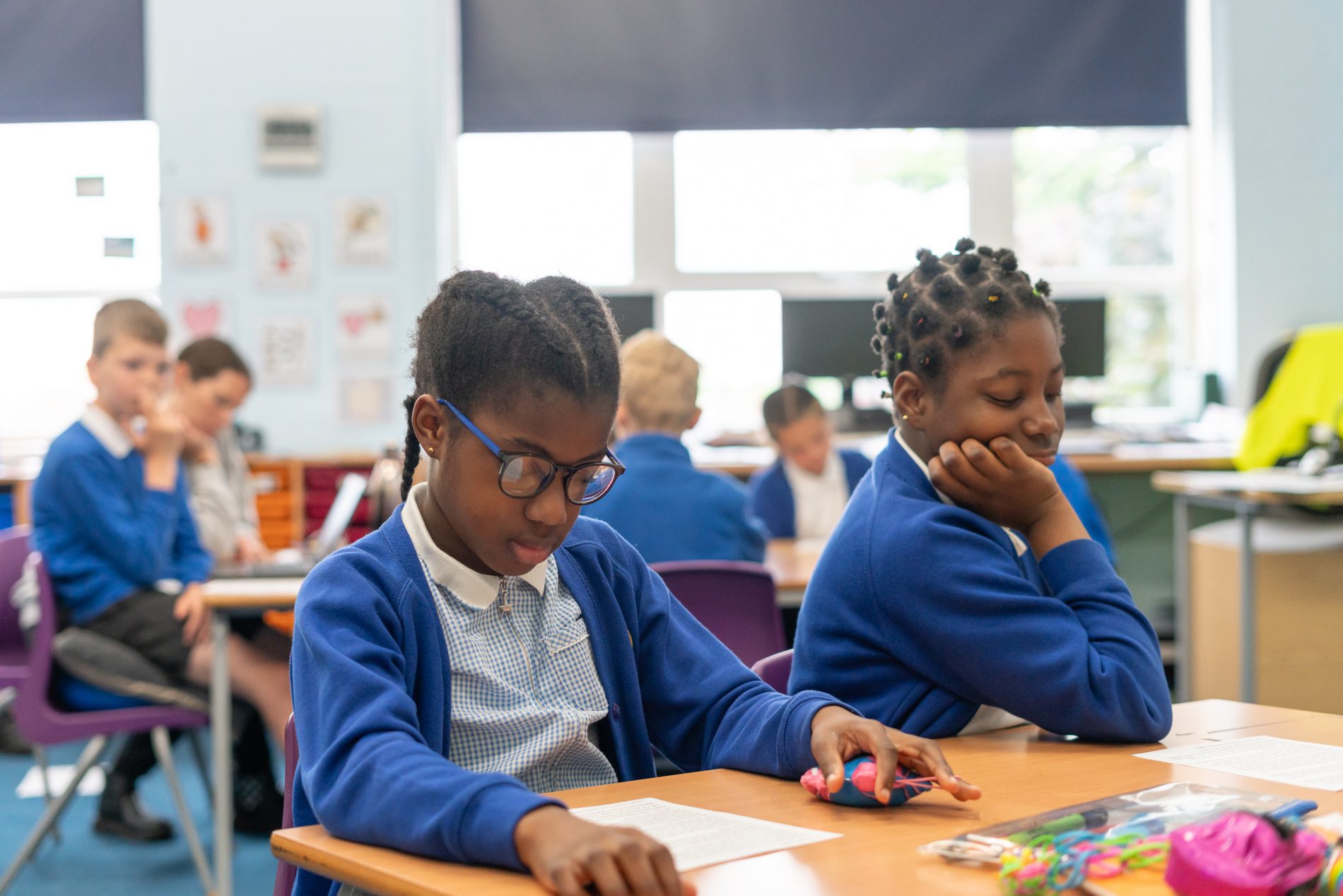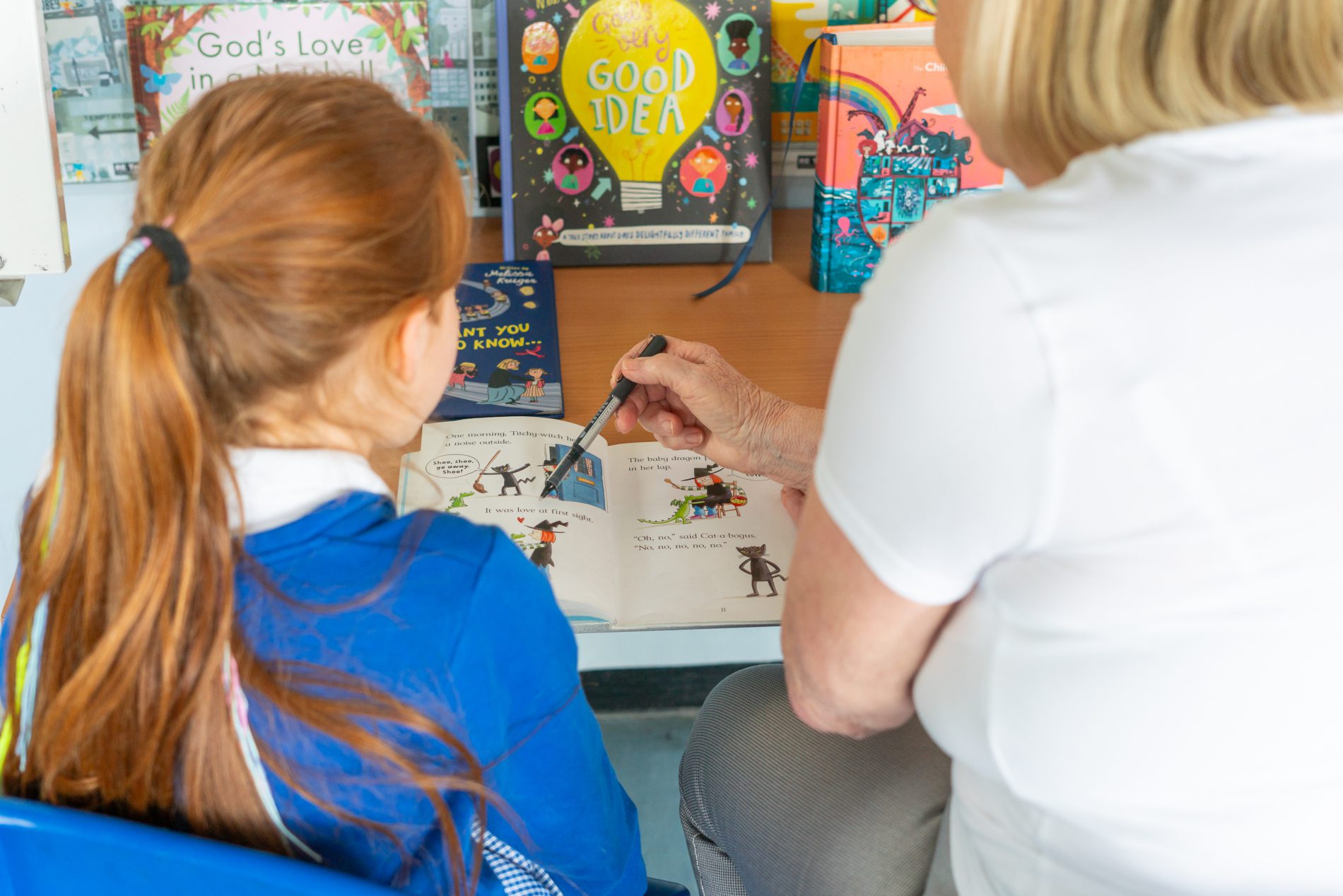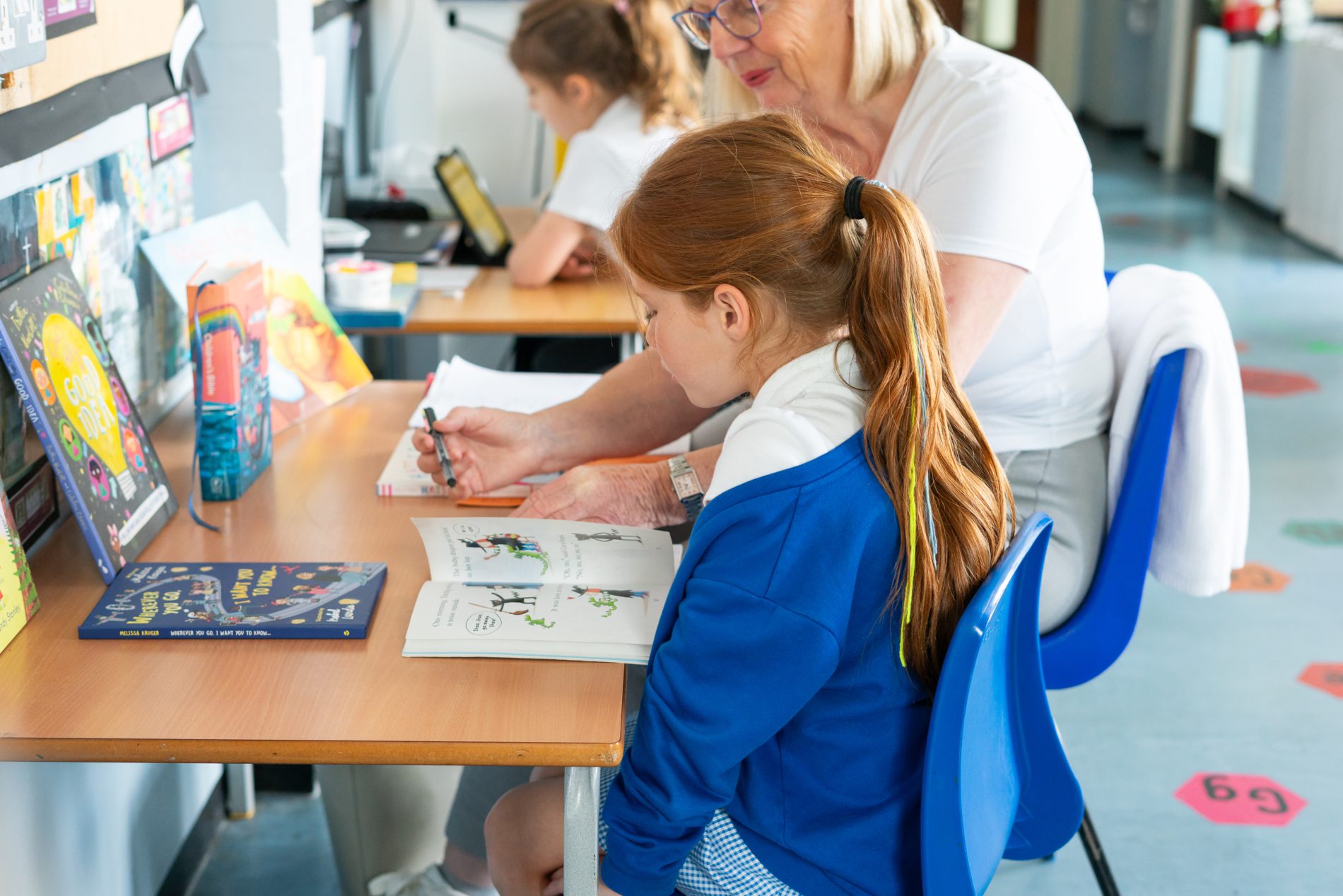English Reading Subject Leader: Mrs G Philpott.
For any more information on Horton Kirby’s English Reading Curriculum, please contact the office.
At Horton Kirby Church of England Primary School, English reading is given top priority and is a key driver for our curriculum.
Intent
At Horton Kirby CE Primary School, the teaching of reading is at the very core of our curriculum. It is our intention that our pupils are taught the skills to become competent, fluent readers with the ability to comprehend a wide range of texts in order to develop knowledge of themselves, their community and the diverse world in which they live.
We are committed to providing our pupils with a broad and diverse range of high-quality texts and books from which they develop understanding of new and varied vocabulary. Our reading curriculum has been designed to expose our pupils to a wide range of modern and classic literature as well as texts that reflect the realities of the children in our school community and beyond. Key texts, appropriate to the year group, have been incorporated into our English curriculum which allow exploration of the five main themes of reading, being: ‘archaic language’, ‘non-linear time sequences’, ‘complex narrative’, symbolic or figurative text’ and ‘resistant’.
We provide opportunities for our pupils to gain knowledge across the curriculum; and to establish an appreciation and love of reading for pleasure.



Implementation
The systematic teaching of Phonics using Little Wandle Letters and Sounds Revised is of the highest priority throughout the Early Years Foundation Stage (EYFS) and Year 1. Phonics teaching is delivered on a daily basis in a sequential and exciting way so that long-term memory is embedded. Our learners are taught to recognise, blend and segment sounds for Reading and Spelling. Teachers draw upon formative and summative assessments to ensure that pupils are stretched and challenged and to identify those who may require additional support. Timely ‘Keep Up’ interventions are planned for those pupils who are identified as working below expected levels. Pupils who have not passed the Phonics Assessment are monitored and supported in further years.
From EYFS and Year 1, pupils read Big Cat Phonics for Little Wandle phonically decodable books which are carefully matched to each child’s secure phonic knowledge in reading words, to include tricky words. Once reading confidently and showing signs of developing fluency and comprehension, they move on to the Accelerated Reader programme. Reading books and texts are accurately matched to pupil ability, being graded with a ZPD (Zone of Proximal Development) to ensure clear progression of skills and appropriate challenge. A wide and diverse range of texts are provided in school so we can engage all abilities and foster a love of reading, including High Interest Low Reading Age for KS2 children.
From Year 2, the teaching of reading is through Whole Class Reading using the domains of VIPERS (Vocabulary, Infer, Predict, Explain, Retrieve, Sequence/Summarise), and enables regular practise to build long-term memory around reading and comprehension skills. Through the use of the Read in to Writing programme, our reading sessions ensure pupils are immersed in a wide range of fiction, non-fiction and poetry. Pupils read independently for pleasure and in teacher-directed whole class and small group sessions to develop fluency, resilience and stamina with reading and comprehension skills. Teachers adapt activities for accessibility for SEND groups and challenge for more able and confident readers.
Our inviting library, outdoor reading hut and classroom reading areas offer a choice of genres as well as topic-themed books, books from different cultures and diversity to promote reading and research in all subjects.
To support the well-structured and progressive curriculum, we celebrate the power and diversity of language through author visits, book fairs, story-telling events, shared reading activities, bedtime stories and World Book Day.
Impact
High quality phonics means our learners make good progress from their starting points and this is continued as they move through the school. Our pupils leave Horton Kirby CE Primary School, motivated to read and curious to explore a range of texts and genres. They are competent readers who can recommend books to their peers, have a thirst for reading a range of genres including poetry, and participate in discussions about books, including evaluating an author’s use of language and the impact this can have on the reader. They can also read books to enhance their knowledge and understanding of all subjects on the curriculum, their community and the diverse world we live in, making them ready for the wider world of secondary school, further training and employment.

Accelerated Reader
At Horton Kirby C of E Primary School, the children from Year Two upwards follow Accelerated Reader. Class teachers will decide when it is appropriate for the children to start using Accelerated Reader. A child needs to have some fluency in their reading as this programme does not help children learn to read – it consolidates their learning and promotes reading comprehension rather than decoding and word reading skills.
Accelerated Reader is a computer program that helps teachers manage and monitor children’s independent reading practice. Children, with the support of their class teacher, pick a book at their own level and read it at their own pace. When finished, the children take a short quiz on the computer or iPad. (Passing the quiz is an indication that the child understood what was read).
If a child does not do well on the quiz, the teacher may help them choose another book that is more appropriate or ask more probing questions as they read, and before they take their next quiz. In most cases, children really enjoy taking the quizzes. Since they’re reading books at their reading and interest levels, they are likely to be successful. This is satisfying for most children. Best of all, they learn and grow at their own pace.


English Reading in Each Stage
From EYFS, children read phonically decodable books which are carefully matched to each child’s secure phonic knowledge in reading words, including tricky words. Children who are not yet decoding have daily additional blending practice in small groups so that they quickly learn to blend and can begin to read books.
In Reception, children have access to the reading corner every day in their free flow time and the books are continually refreshed.
Recommended Books for Reception
For more recommended reading, please visit the EYFS Class page
To read our Phonics and Early Reading Policy, please visit the policy page.
Click the link below to view our EYFS long-term plan:
In KS1, we teach children to read through reading practice sessions three times a week. Each reading practice session has a clear focus so that the demands of the session do not overload the pupil’s working memory. Pupils are given the opportunity to read texts from a range of sources including books, poetry, rhymes and research.
Click the links below to view recommended texts for year 1 and year 2:
Click the link below to view our year 1 and year 2 long-term plans:
A wide and diverse range of texts is provided in school so we can engage all abilities and foster a love of reading, including High-Interest Low Reading Age for KS2 children. Pupils will now be confident, competent and fluent readers with the ability to comprehend a wide range of texts.
Click the links below to view recommended texts for year 3-6:
Year 3 and Year 4
Year 5 and Year 6
Click the link below to view our year 3 – 4 long-term plan, and year 5 – 6 long-term plan:
Year 3 Curriculum Year Overview
Year 4 Curriculum Year Overview
English Reading Progression
At Horton Kirby, we develop our pupil’s English Reading through essential skills; growing their depth of knowledge year on year. Through the use of Reading Levels, we are able to monitor their progress and allocate extra support and adaptations to the curriculum for pupils to maintain strong confidence in reading.
When progressing, young readers will, at a certain stage, successfully make the leap into their first chapter books. To help pupils to pick a selection of short, illustrated chapter books that are perfect for children launching into independent reading, please click here.
Assessments
Assessments are used to monitor progress and to identify any child needing additional support as soon as they need it. This is evaluated daily within the class to identify children needing ‘Keep-up support’. Each week teachers use ‘Review lessons’ to assess gaps, address these immediately and secure fluency of GPCs, words and spellings.
Every six weeks teachers will perform a ‘summative assessment’ to assess progress, identify gaps in learning that need to be addressed, identify any children needing additional support and plan the ‘Keep-up support’ that they need.
Through the Senior Leadership Team and the Little Wandle Letters and Sounds Revised assessment tracker, teachers will be able to narrow attainment gaps between different groups of children and offer any additional support needed.
Children in Year 1 will sit the Phonics Screening Check. Any child not passing the check will re-sit this in Year 2.
Ongoing assessments will continue for children in years 2 to 6 through their teacher’s ongoing formative assessment as well as through the half-termly Little Wandle Letters and Sounds Revised summative assessments.
SEND Information
Teachers adapt activities for accessibility for SEND groups and challenge more able and confident readers. Additional reading support is available for vulnerable children.
Children in Reception and Year 1 who are receiving additional phonics ‘Keep-up sessions’ read their reading practice book to an adult daily, this ensures consistency and pace of progress.
Home Learning
The decodable reading practice book is taken home to ensure success is shared with the family. Reading for pleasure books also go home for parents to share and read to children. At Horton Kirby, we use the Little Wandle Letters and Sounds Revised parents’ resources to engage our families and share information about phonics, the benefits of sharing books, how children learn to blend and other aspects of our provision, both online and through workshops.
Children from Reception onwards have a home reading record. The parent/carer records comments to share with the adults in school and the adults will write in this on a regular basis to ensure communication between home and school. As the children progress through school, they are encouraged to write their own comments and keep a list of the books/authors that they have read. Children across the school have regular opportunities to engage with a wide range of Reading for Pleasure events (book fairs, author visits and workshops, national events etc)

